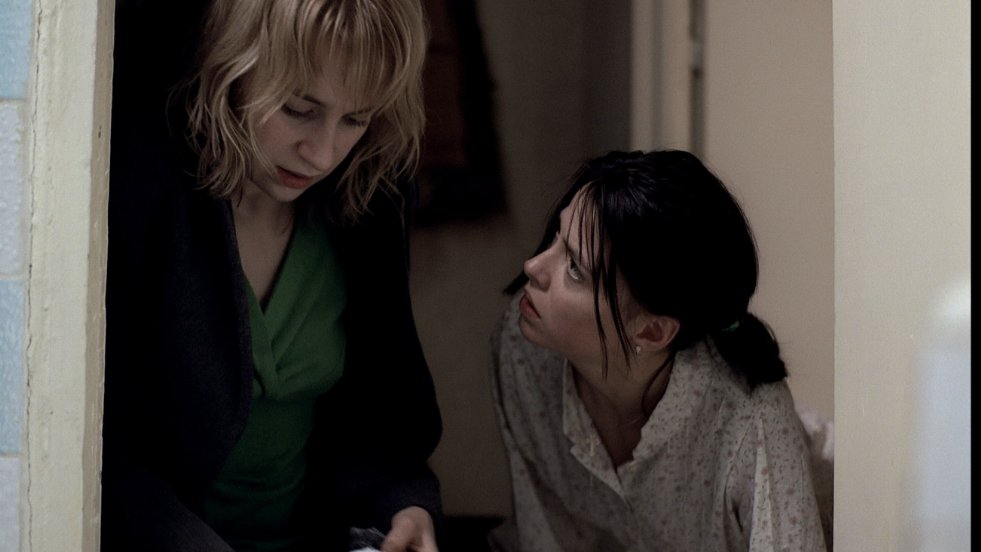 This post is part of a ten-part series drawing from the Arts and Faith Top 100 Films. You can read the introduction the series here, along with the schedule of films to be featured. This film is being featured out of order as I work to acquire a copy of The Bicycle Thief.
This post is part of a ten-part series drawing from the Arts and Faith Top 100 Films. You can read the introduction the series here, along with the schedule of films to be featured. This film is being featured out of order as I work to acquire a copy of The Bicycle Thief.
If there is anything the polarized debate about abortion needs a lot more of, it is story, narrative, lived experience of those who have been personally involved with abortion–whether pregnant mother, clinic worker, former clinic worker, survivor of botched abortion, and so on.
It is no secret that I am unapologetically pro-life. I try hard to be consistent about what the respect for human life means to me: It means protection of the unborn, it means advocating for mothers who are in need, it means alleviating poverty, it means a deep cautiousness about the death penalty, it means advocating for reasonable gun-control protection, it means advocating for those who are being slaughtered in other countries, it means being open to persuasion about other ways to honor life at all levels. But I am against abortion, and I believe one day we will look back on our progressive policies allowing the ending of life and find ourselves horrified about what was allowed.
However, even with my firm commitment to being pro-life, I feel a real need to listen to the stories of women who have been in circumstances where they considered abortion and to hear the stories of other stakeholders in the debate as well. I want to get past talking points to people.
The riveting documentary After Tiller helped me hear the stories of late-term abortionists, the issues they do in fact wrestle with, and the dangers they face. I disagree stridently with every abortionist in the film, but watching it helped humanize these people for me. It helped me understand their perspective better, even if I disagree with it in the strongest possible way. It gave me concern for these real human beings, however misguided and wrong, and yet also human beings whose lives need valuing and protection.
Recently, I have also been completely riveted by the podcast Abortion Diary, which allows women to share their abortion experiences honestly, with the interviewer, Melissa Madera, mostly just listening and really providing no agenda for how they are “supposed to” feel about their abortions. If they feel regret, they get to say that. If they feel relieved, they get to say that.
I can’t seem to stop listening to these stories. I want to hear what these women really think about their abortions, when they don’t feel they have to perform or provide a certain reaction for the benefit of the listener. In the process, there have been times I’ve been truly horrified to hear the reasons women have gotten abortions–or other times sympathetic to their plight. But I’ve never been able to objectify these women; their stories have forced me to see them as fellow human beings with real feelings and real lived experiences. Because they don’t feel they have to perform for either a pro-life or pro-choice community, I’ve also seen through their stories ways in which both abortion clinics and pro-life centers sometimes flub their interactions with women who are facing difficult pregnancies. In particular, I’m shocked by the callous way several women describe being treated in abortion clinics, with much judgment and disrespect. The scripts of both “sides” get challenged when women are allowed to honestly tell their stories.
All of this is why I found the Romanian film 4 Months, 3 Weeks, and 2 Days (2007, directed by Cristian Mungiu) remarkably unusual and agenda-free, if also horrifying. [SPOILERS BELOW]
We are dropped into a situation where a young university student named Gabita (Laura Vasiliu) has become pregnant in Communist Romania in 1987. We don’t know the circumstances of her pregnancy and never see the father of the child. Abortion and birth control were outlawed in Romania at this time, not for humanitarian reasons, but because the State wanted to increase the population. Gabita turns to her university roommate, Otila (Anamaria Marinca), to procure an illegal abortion for her. Without dramatic music or explanatory flourishes, we are simply shown the process of acquiring this abortion.












